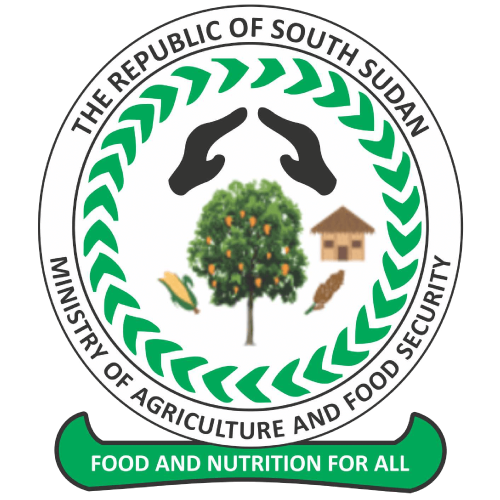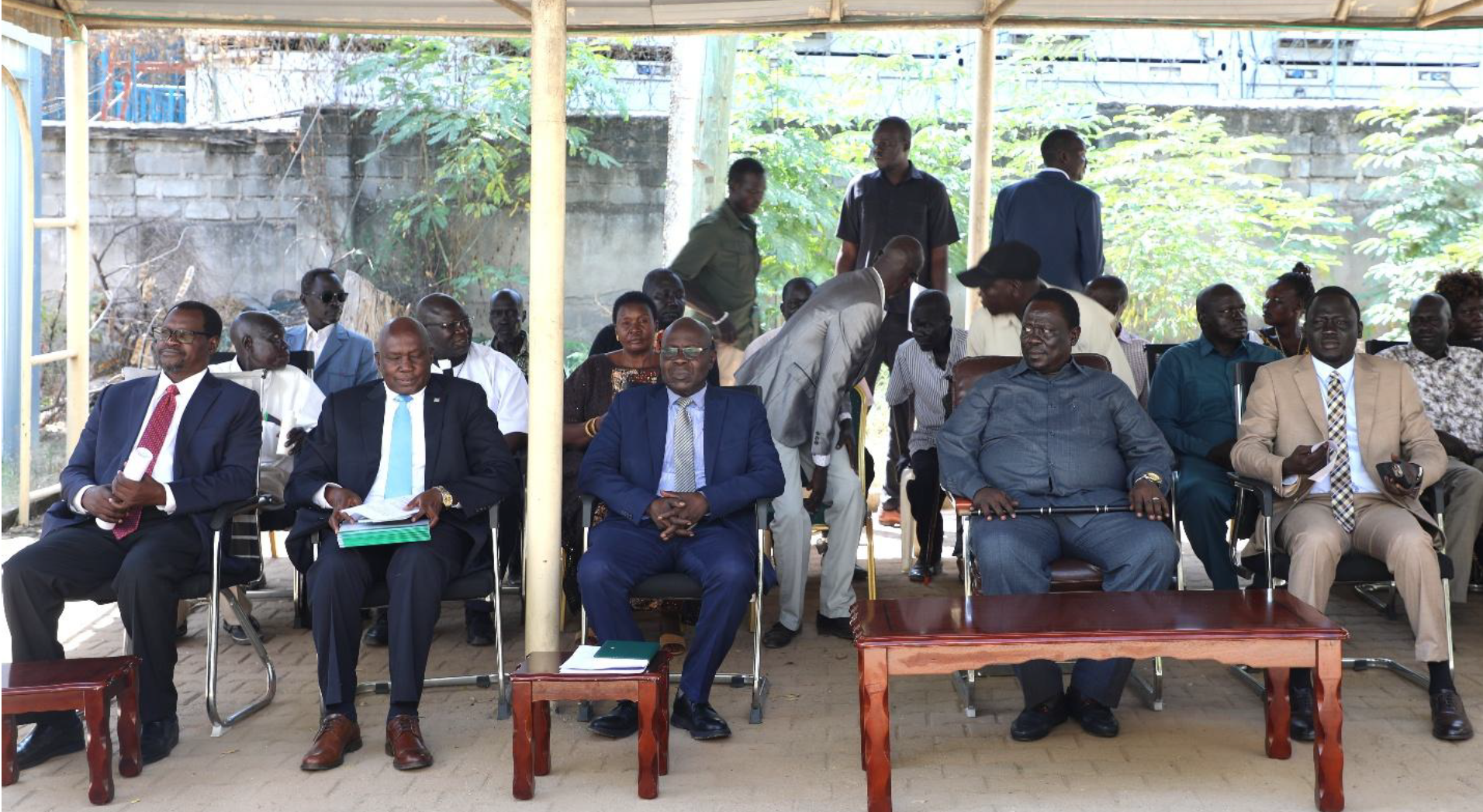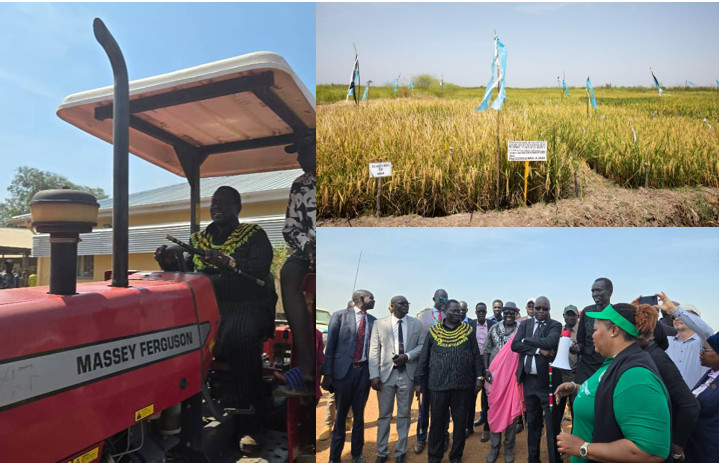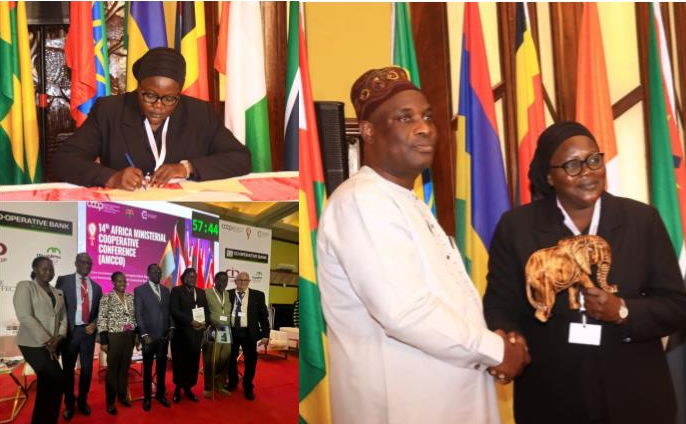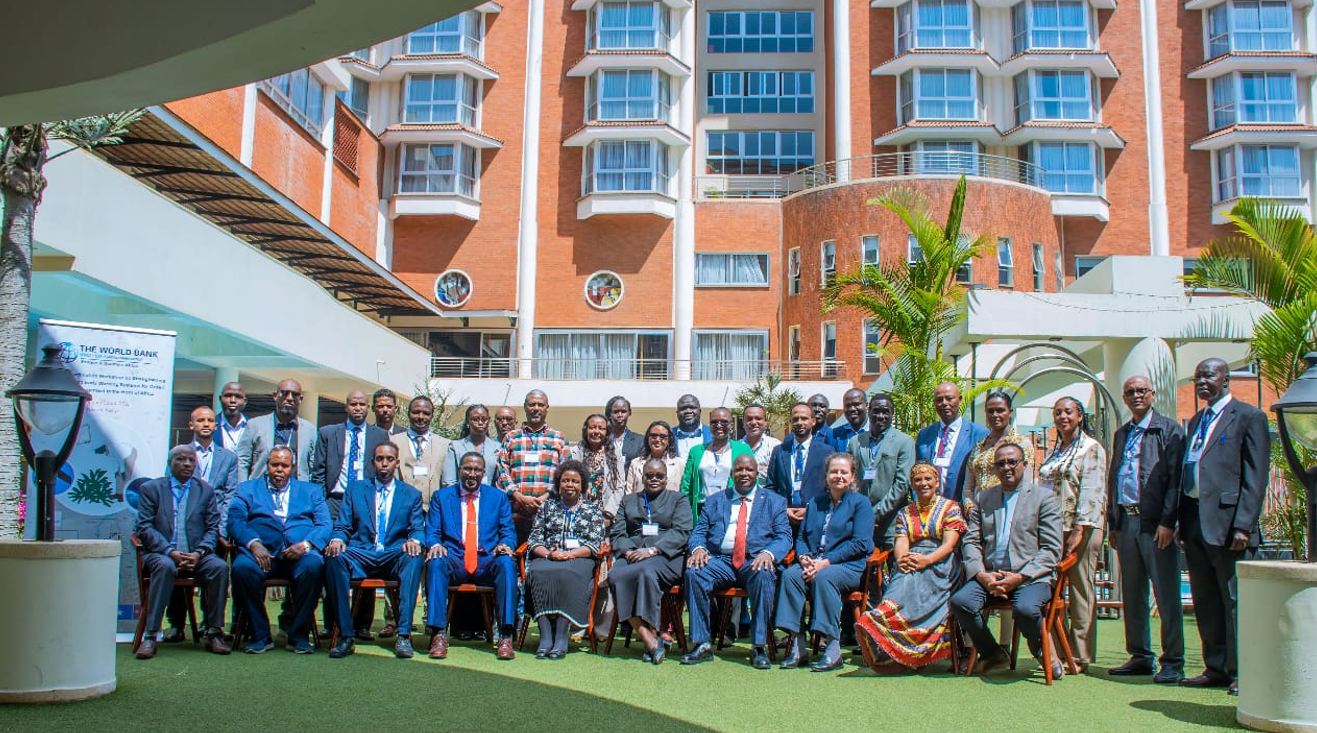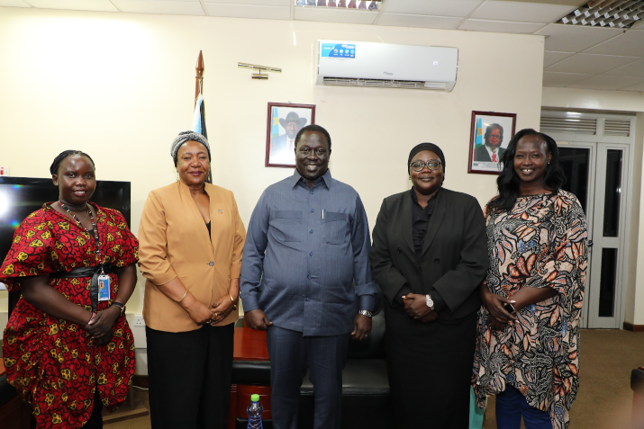
Hon. Hussein Abdelbagi Akol Agany Ayii (Center), Hon. Lily Albino Akol (second to right), Ms. Delphine Seremuga (second to left) and representatives of both institutions pose for a group photo after the meeting. Photo Credi: MAFS.
Juba, South Sudan, Tuesday November 5, 2025 – The Ministry of Agriculture and Food Security (MAFS) held a high-level meeting with the United Nations Entity for Gender Equality and the Empowerment of Women (UN Women) to explore strengthened collaboration aimed at advancing women’s economic empowerment through agriculture in South Sudan.
The meeting was chaired by the Minister of Agriculture and Food Security, Hon. Hussein Abdelbagi Akol Agany Ayii, and the Deputy Minister, Hon. Lily Albino Akol, with participation from the UN Women Country Representative, Ms. Delphine Serumaga. Discussions centered on developing joint strategies to support women across the agricultural value chain, from production and storage to processing, marketing, and access to finance.
Agriculture remains the backbone of South Sudan’s economy, employing over 80 percent of the population, most of them women who serve as the primary source of agricultural labour across the country. Despite their central role in food production, processing, and small-scale marketing, women continue to face significant structural barriers, including limited access to land, tools, finance, improved technologies, extension services, and market opportunities. These constraints limit their productivity and weaken their ability to transition from subsistence farming to meaningful economic participation within agricultural value chains.
The meeting therefore focused on developing joint approaches that position women at the center of agricultural transformation, specifically by supporting women throughout the full agricultural value chain: production, storage, processing, marketing, and access to financial services for value addition.
Hon. Hussein reflected on his experience engaging with women-led cooperatives across the country, noting the critical roles women already play:
“I have always advocated for women and looked for ways to support them, even before joining the Ministry. Through our livelihood’s projects, I discovered that women make up most agricultural workers. In Rumbek, I met over 20 cooperatives led largely by women. In Bor, women were at the forefront of fisheries cooperatives. At the Aweil Rice Scheme, women farmers are driving progress more strongly than men. This is the same trend I saw in Warrap.
Through our partnership with the World Bank, we have provided support to farmers most of whom are women, but it is not enough. There are still many gaps. We need UN Women to come in and strengthen these efforts and fil any gaps. We are organizing women into cooperatives as an entry point for support. When tractors were brought in, I insisted they be given first to cooperatives, and most of those cooperatives turned out to be women-led. Yet many more women are seeking support in different areas, and UN Women’s involvement is critical in helping us meet these needs.”
UN Women’s Country Representative affirmed the importance of stronger collaboration with MAFS:
“I wanted to personally introduce myself so we can build a relationship that enables us to support your Ministry. It is vital that UN Women works closely with the Ministry of Agriculture to advance gender inclusivity. We want to better understand your programmes and identify where our support can add the most value.”
Deputy Minister Hon. Lily Albino Akol highlighted the demographic and structural realities shaping women’s roles in agriculture:
“In South Sudan, most people live in rural areas where agriculture takes place, and most agricultural work is done by women. With men and youth increasingly moving to towns or other regions, women now head many households and run both farming and small economic activities.
At the Ministry, we ensure our programmes are gender-sensitive by deliberately targeting women’s groups and cooperatives. Cooperatives are critical because they strengthen women by giving them skills, tools, and collective bargaining power. Women often cannot access loans due to lack of collateral, since land and property are traditionally owned by men. These are the gaps we try to address, and this is exactly where UN Women can make a meaningful difference. When women are economically empowered, households and communities become stronger, especially in rural areas.”
Both institutions reaffirmed their commitment to advancing women’s economic empowerment through agriculture. To achieve this, MAFS and UN Women will explore concrete areas of joint action, including strengthening women-led cooperatives through training, governance support, and access to tools and technologies, improving women’s access to finance by designing tailored financial products and facilitating linkages with microfinance institutions and VSLAs, supporting value addition and processing to enable women to move beyond primary production into more profitable sectors of the value chain, enhancing gender-responsive extension services and increasing the number of female extension workers, promoting women’s access to land and productive assets through advocacy, policy dialogue, and community-level sensitization, improving market access by connecting women producers to structured markets, trade fairs, and agribusiness opportunities, and joint programme development and resource mobilization to scale successful models and reach more women across the country.
MAFS and UN Women expressed a shared vision: when women farmers thrive, families thrive, and strong families build resilient communities. Through strengthened partnership, both institutions aim to elevate women from being the backbone of agricultural labour to becoming key drivers of South Sudan’s agricultural growth and economic transformation.
